Filter by
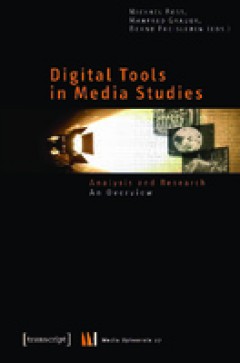
Digital tools in media studies : analysis and research. an overview
Digital tools are increasingly used in media studies, opening up new perspectives for research and analysis, while creating new problems at the same time. In this volume, international media scholars and computer scientists present their projects, varying from powerful film-historical databases to automatic video analysis software, discussing their application of digital tools and reporting on …
- Edition
- -
- ISBN/ISSN
- 9783837610239
- Collation
- 191 p.
- Series Title
- Medienumbrüche, 27
- Call Number
- 302.23 DIG d
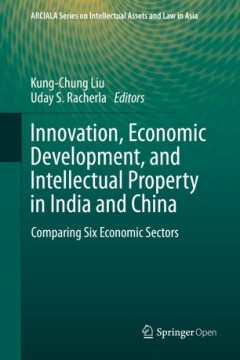
Innovation, economic development, and intellectual property in India and Chin…
This open access book analyses intellectual property and innovation governance in the development of six key industries in India and China. These industries are reflective of the innovation and economic development of the two economies, or of vital importance to them: the IT Industry, the film industry, the pharmaceutical industry, plant varieties and food security, the automobile industry, and…
- Edition
- -
- ISBN/ISSN
- 9789811381027
- Collation
- xvii, 514p. : ill.
- Series Title
- -
- Call Number
- 346.54048 INN i
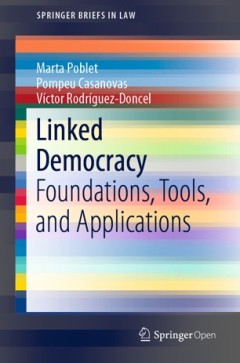
Linked democracy : foundations, tools, and applications
This open access book shows the factors linking information flow, social intelligence, rights management and modelling with epistemic democracy, offering licensed linked data along with information about the rights involved. This model of democracy for the web of data brings new challenges for the social organisation of knowledge, collective innovation, and the coordination of actions. Licensed…
- Edition
- -
- ISBN/ISSN
- 9783030133634
- Collation
- xv, 130p. : ill.
- Series Title
- -
- Call Number
- 343.0999 POB l
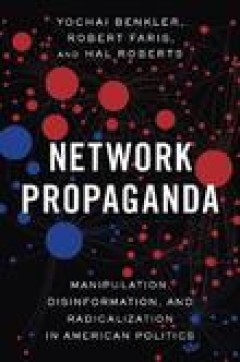
Network propaganda : manipulation, disinformation, and radicalization in Amer…
"Is social media destroying democracy? Are Russian propaganda or ""Fake news"" entrepreneurs on Facebook undermining our sense of a shared reality? A conventional wisdom has emerged since the election of Donald Trump in 2016 that new technologies and their manipulation by foreign actors played a decisive role in his victory and are responsible for the sense of a ""post-truth"" moment in which d…
- Edition
- -
- ISBN/ISSN
- 9780190923624
- Collation
- IX, 462 p.
- Series Title
- -
- Call Number
- 324.9730932 BEN n
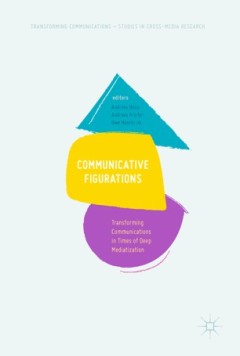
Communicative Figurations : Transforming Communications in Times of Deep Medi…
This open access volume is about how to research the influence of our changing media environment. Today, there is not one single medium that is the driving force of change. With the spreading of various technical communication media such as mobile phone and internet platforms, we are confronted with a media manifold of deep mediatization. But how can we investigate its transformative capability…
- Edition
- -
- ISBN/ISSN
- 9783319655840
- Collation
- XXIII, 444 p.
- Series Title
- -
- Call Number
- 302.23 COM c

Hanging Out, Messing Around, and Geeking Out : Kids Living and Learning with …
An examination of young people's everyday new media practices—including video-game playing, text-messaging, digital media production, and social media use.Conventional wisdom about young people's use of digital technology often equates generational identity with technology identity: today's teens seem constantly plugged in to video games, social networking sites, and text messaging. Yet there…
- Edition
- -
- ISBN/ISSN
- 9780262518543
- Collation
- XIX, 419 p.
- Series Title
- -
- Call Number
- 302.23083 ITO h
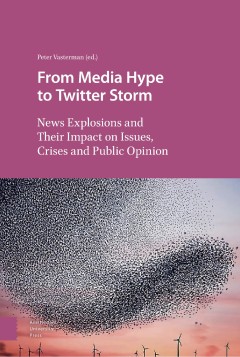
From media hype to Twitter storm : the dynamics of self reinforcing processes…
The word media hype is often used as rhetorical argument to dismiss waves of media attention as overblown, disproportional and exaggerated. But these explosive news waves, as well as - nowadays - the twitter storms, are object of scientific research, because they are an important phenomenon in the public area. Sometimes it is indeed ‘much ado about nothing’ but in many cases these media sto…
- Edition
- -
- ISBN/ISSN
- 9789048532100
- Collation
- 401p. : ill.
- Series Title
- -
- Call Number
- 070.4 FRO f
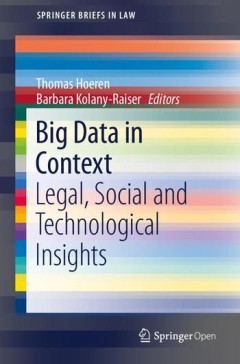
Big data in context : legal, social and technological insights
This book sheds new light on a selection of big data scenarios from an interdisciplinary perspective. It features legal, sociological and economic approaches to fundamental big data topics such as privacy, data quality and the ECJ’s Safe Harbor decision on the one hand, and practical applications such as smart cars, wearables and web tracking on the other. Addressing the interests of research…
- Edition
- -
- ISBN/ISSN
- 9783319624617
- Collation
- xii, 120p. : ill.
- Series Title
- SpringerBriefs in Law
- Call Number
- 343.099 BIG b
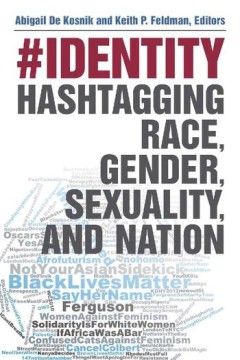
#Identity : hashtagging race, gender, sexuality, and nation
"Since its launch in 2006, Twitter has served as a major platform for political performance, social justice activism, and large-scale public debates over race, ethnicity, gender, sexuality, and nationality. It has empowered minoritarian groups to organize protests, articulate often-underrepresented perspectives, and form community. It has also spread hashtags that have been used to bully and …
- Edition
- -
- ISBN/ISSN
- 9780472074150
- Collation
- xi, 365p. : ill.
- Series Title
- -
- Call Number
- 302.30285 HAS h
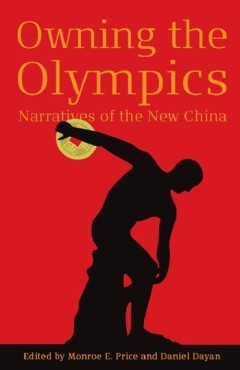
Owning the Olympics : narratives of the new China
"A major contribution to the study of global events in times of global media. Owning the Olympics tests the possibilities and limits of the concept of 'media events' by analyzing the mega-event of the information age: the Beijing Olympics. . . . A good read from cover to cover." —Guobin Yang, Associate Professor, Asian/Middle Eastern Cultures & Sociology, Barnard College, Columbia Universit…
- Edition
- -
- ISBN/ISSN
- 9780472070329
- Collation
- 416p. : ill.
- Series Title
- -
- Call Number
- 796.48 OWN o
 Computer Science, Information & General Works
Computer Science, Information & General Works  Philosophy & Psychology
Philosophy & Psychology  Religion
Religion  Social Sciences
Social Sciences  Language
Language  Pure Science
Pure Science  Applied Sciences
Applied Sciences  Art & Recreation
Art & Recreation  Literature
Literature  History & Geography
History & Geography